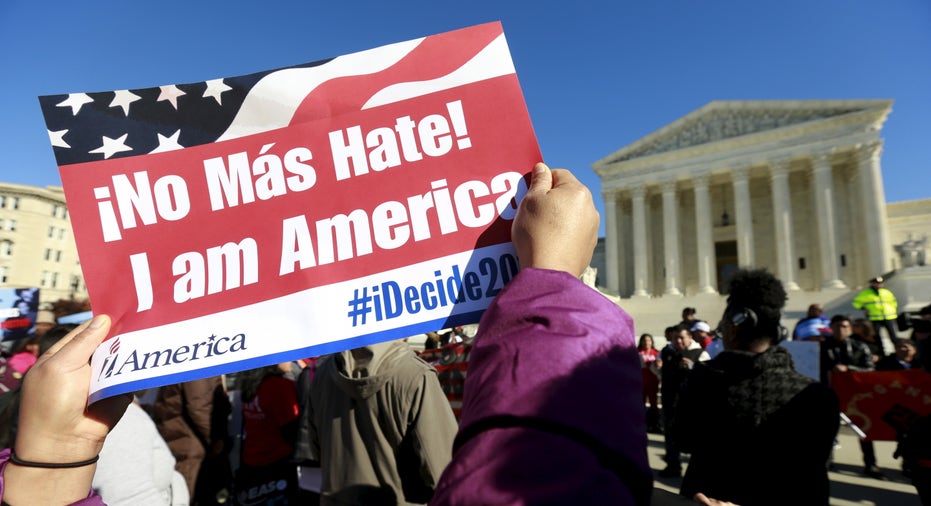Fate of Obama's Immigration Plan in Hands of Supreme Court

The U.S. Supreme Court takes up a case on Monday probing the limits of presidential powers as the justices weigh whether President Barack Obama overstepped his authority with unilateral action to protect millions of people in the country illegally from deportation.
The case, pitting Obama against 26 states led by Texas that filed suit to block his 2014 immigration plan, is one of the biggest of the court's current term ending in June.
The court is evenly divided with four liberal justices and four conservatives following the February death of conservative Antonin Scalia. That raises the possibility of a 4-4 split that would leave in place a 2015 lower-court ruling that threw out the president's executive action that bypassed the Republican-led Congress.
Obama took the action after House of Representatives Republicans killed bipartisan legislation, billed as the biggest overhaul of U.S. immigration laws in decades and providing a path to citizenship for illegal immigrants, that was passed by the Senate in 2013.
Obama's plan was tailored to let roughly 4 million people - those who have lived illegally in the United States at least since 2010, have no criminal record and have children who are U.S. citizens or lawful permanent residents - get into a program that shields them from deportation and supplies work permits.
On a sunny spring day in the U.S. capital, hundreds of demonstrators, most supporting Obama's action, gathered outside the white marble courthouse ahead of the arguments.
Zaira Garcia, 23, a recent graduate of the University of Texas at Austin, recalled on the court's front steps how her Mexican father's employers would sometimes withhold pay because they knew he was not in the country legally.
"It's inhumane, the way people who are undocumented can be taken advantage of," Garcia said. "It made us realize and appreciate the sacrifice my parents made to come here. A lot of people think coming to the U.S. is an easy choice, but the reality is hard work and lots of humiliation because of lack of status."
Tears formed in the eyes of Ariana Galindo, 19, as she spoke of how her family would constantly live on the edge, worried about her parents being deported. She is an American citizen but her parents are in the country illegally.
"I'm here representing my family," Galindo, who traveled cross-country from Los Angeles, said as she waited in a long line to hear Monday's argument.
"Seeing my parents with so much stress, trying to pay rent and bills and provide for our family - with no sort of securities in place - gives me strength," Galindo said. "There are millions more like them, and we have to speak for them."
OBAMA'S PLAN BLOCKED
Obama's program is called Deferred Action for Parents of Americans and Lawful Permanent Residents (DAPA).
Shortly before the plan was to take effect last year, a federal judge in Texas blocked it after the Republican-governed states filed suit against the Democratic president's executive action. The New Orleans-based 5th U.S. Circuit Court of Appeals upheld that decision in November.
The Supreme Court's ruling is due by the end of June.
Obama's action arose from frustration within the White House and the immigrant community about a lack of action in politically polarized Washington to address the status of people, mostly Hispanics, living in the United States illegally.
The court will decide the case at a time when immigration has become a contentious issue in the U.S. presidential campaign, with leading Republican candidates calling for all of the estimated 11 million people in the country illegally to be deported.
Obama, who has seen many of his major legislative initiatives stifled by Republican lawmakers, has drawn Republican ire with his use of executive action to get around Congress on immigration policy and other matters including gun control and healthcare.
On the immigration action, the states contend Obama exceeded the powers granted to him by the Constitution by usurping the authority of Congress.
The Obama administration called Obama's action mere guidance to federal immigration authorities on how to exercise discretion given by Congress on enforcing immigration laws.
(Reporting by Lawrence Hurley; Additional reporting by Clarece Polke and Robert Iafolla; Editing by Will Dunham)



















